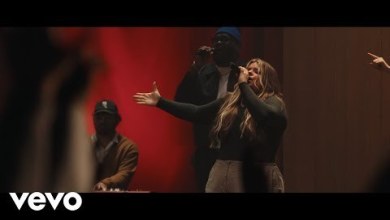Reviews|March 11, 2013 09:31 EDT
Review of Steven Curtis Chapman's "Deep Roots" Album

"Saddle up your horses we've got a trail to blaze/Through the wild blue yonder of God's amazing grace." When Steven Curtis Chapman sings those words from his 1991 hit "The Great Adventure," you can picture him wearing his cowboy hat, spurring his stallion and riding right into the great western skies. Though Chapman is known for his pop Christian hits, there's always been a country streak in him. Ever since the early 90s, many of Chapman's compositions have been covered by country artists such as BJ Thomas ("Precious Promise"), Glen Campbell & Billy Dean ("I Will Be There"). By the turn of the Millennium, Chapman began co-writing with Mark Miller a number of tracks for country music's Sawyer Brown on their "Mission Temple Firework Stand" record. One of the songs "Tarzan and Jane," has become a Sawyer Brown fan favorite. As if that was not enough, in 2005, Chapman released "The Abbey Road Seasons." The EP had a distinctive acoustic country flavor. Truth be known, even from Chapman's own canon of songs, many of them (such as "Long Way Home," "One Heartbeat at a Time" and "Angels' Wings") could work as country hits. Teaming with the famous Southern restaurant chain Cracker Barrel, Chapman has finally released his newly recorded country Christian album "Deep Roots."
"Deep Roots" as the title suggests is a nostalgic nod back to Chapman's Kentucky roots. In a state which fathered bluegrass music, all of these songs have an acoustic stripped down backing flourished with the rustic sounds of the fiddle, banjo, pedal steel, steel guitar and piano. Here Chapman resurrects seven traditional hymns of the church giving each a down home country/bluegrass reading. Bluegrass stalwart Ricky Skaggs is the natural choice for a duet partner. Further, Skaggs previously sang backing vocals for Chapman on "The Great Adventure." However, this is the first time the two gentlemen get to sing together on "What a Friend We Have in Jesus." Not only is the friendship of Jesus celebrated but Chapman and Skaggs sound like old buddies singing together. Since this project harkens back to Chapman's roots, it's natural his family is involved. Most striking is daughter-in-law Jillian Edwards Chapman who has a crystal-clear Kari Jobe-like voice and joins Chapman on a sped-up banjo-led "How Great Thou Art." While grandfather Herb Sr. and brother Herb Jr. join in for a blistering rhythmic bluegrass rendition of the traditional "Life is Like a Mountain Railroad." And the trio of Chapmans come together again for a slow acoustic take of the Gaithers' "He Touched Me."
Then there are new re-cuts of six of Chapman's previously released compositions. What is interesting is that two of them are taken from Chapman's debut record and one from his sophomore release. The pride of place goes to Chapman's somehow overlooked "Hiding Place" originally taken from his 1989 "First Hand" album. With a more organic backing of soft strings, pedal steel and gentle acoustic guitar, this new version "Hiding Place" exerts a sense of intimate security in God as Chapman sings, "I am protected from the storm that rages." The other song which originally came from "First Hand" is "My Redeemer is Faithful to Me." This hymn-like song takes on a life of its own with the soaring fiddling and Chapman's warm delivery. With the gentler backings, Chapman's first ever number one (taken from his second album) "His Eyes" almost has a child-like quality that is so refreshing.
It is not difficult to discern that "Cinderella" is Chapman's favorite song. Ever since its release, "Cinderella" has been remixed, re-recorded and has appeared on quite a number of Chapman's subsequent albums. It's a song written with heart and imagination; told from the perspective of a dad wondering how much more quality time he has left with his daughter. This song takes on a special significance considering that Chapman lost his daughter not that long ago. On the whole, "Deep Roots" is beautiful return back to the songs that have molded Chapman as a person. And obviously these songs are not just part of Chapman's history; the way he sings them with such an intimate verve shows us that they still minister to him and to us too.












